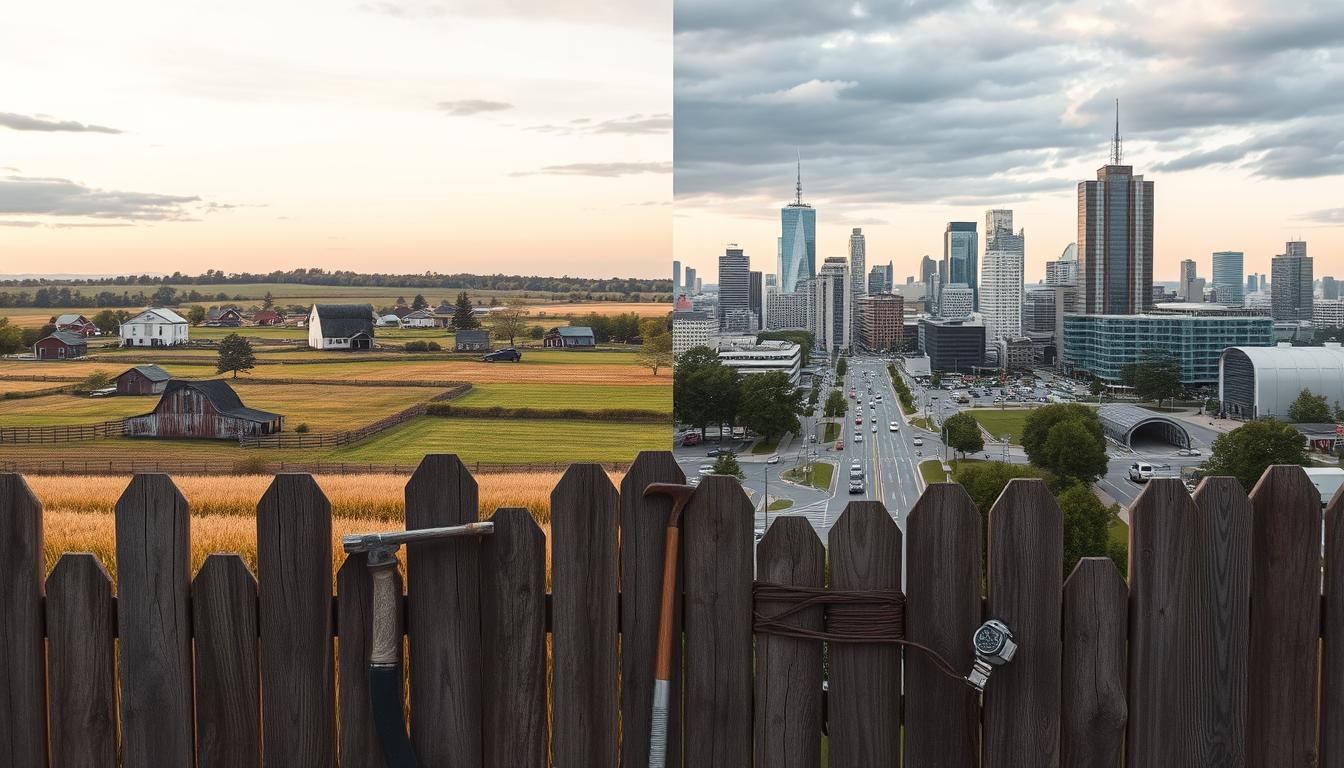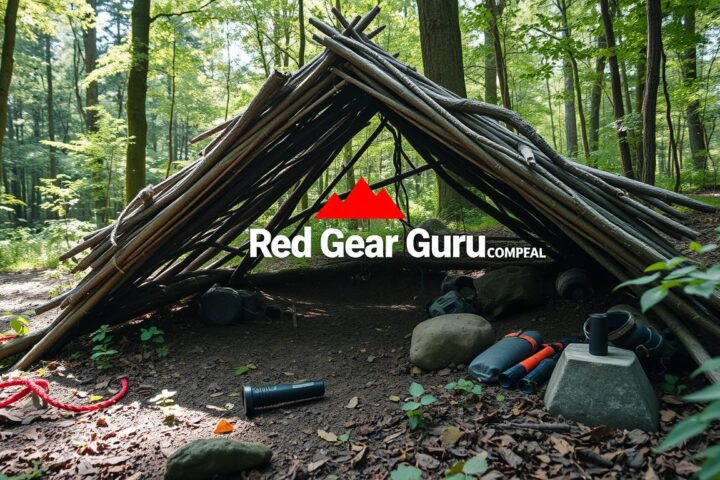Did you know over 70% of rural Americans feel ignored in national politics? This shows a big gap between the Democratic Party and rural folks. As politics focuses more on cities, rural areas feel left out. They see no policies that meet their specific needs and challenges.
Rural areas are often left behind in talks about jobs, schools, and health care. This affects elections and makes people doubt politicians. It’s key to understand why rural voters feel ignored.
Looking into why Democrats struggle in rural areas is important. We see how these differences shape voting habits and party loyalty. By understanding rural values, we can find ways to include them more in politics.
Key Takeaways
- Over 70% of rural Americans feel ignored in national political discussions.
- Many Democrats are perceived as out of touch with rural needs.
- Urban-centric policies often fail to resonate with rural voters.
- Electoral outcomes in rural areas significantly impact local policies.
- Understanding rural values is essential for effective campaigning.
- Bridging the gap requires listening to rural voices and addressing their priorities.
The Disconnect: Urban vs. Rural Perspectives
The gap between urban and rural views shapes politics and community involvement in the U.S. City dwellers often focus on issues like public transport and affordable homes. In contrast, rural folks care more about farming, land use, and local businesses.
It’s key to grasp these differences for better political talks. Rural folks might feel left out by city-focused policies. Studies show big gaps in values and lifestyles between these groups, making it hard to understand each other.
- Urban voters are more likely to support initiatives that address:
- Public transit improvements
- Affordable housing programs
- Environmental regulations aimed at urban areas
- Land use regulations
- Agricultural subsidies
- Support for local businesses and economies
Urban and rural folks have different ways of getting involved in their communities. This makes it tough for leaders to find common ground. Yet, finding ways to connect could boost voter participation everywhere.
Creating policies that include everyone is more important than ever. As political views change, it’s crucial to listen to all voices. By understanding rural needs, we can build a stronger political community.
For more on marketing to different groups, check out the Jaguar ad campaign. It shows the hurdles of reaching out to various audiences in the car world. Read more about it here.
Why Democrats Struggle in Rural Elections
Democratic candidates face big challenges in rural elections. Rural areas usually vote for Republicans. This is because of stereotypes about Democrats and a feeling of being left out.
Rural voters see Democrats as city folks who don’t get their problems. They care a lot about farming, health care, and local jobs. But Democrats often don’t talk about these important issues. This makes it hard for them to connect with voters.
- Rural voters prioritize traditional values and are often skeptical of progressive agendas.
- Local economies face issues that may differ drastically from urban settings, such as agriculture policies.
- Campaigns lacking localized strategies often miss opportunities to resonate with voters.
Democratic candidates need to change their approach to win in rural areas. They must work harder to understand and meet the needs of rural communities. This could help them win more votes in the future.
For more on how to win in rural areas, check out this resource. Learning from past successes and failures can help navigate the challenges of rural elections.
Understanding Rural Values and Priorities
Rural areas have special values that shape community priorities. These areas value tradition, self-reliance, and strong family bonds. Many people here are connected to farming and local businesses. This bond with the land makes them want to protect their way of life.
It’s key to understand these values for political involvement. Politicians and candidates do well by focusing on local issues. Rural voters care about property rights, environmental rules, and laws that help farmers. Showing you care about these issues can win their trust.
- Community Well-Being: Rural folks often support local economy and job stability.
- Environmental Stewardship: Finding a balance between farming and nature is important.
- Local Governance: Giving communities control over their lives is a big deal.
- Support for Agriculture: Sustainable farming policies are usually well-received.
Talking about these topics can help Democrats connect with rural folks. It leads to meaningful conversations that value rural views.
Politics: The Shift Towards Local Solutions
The way politics works in rural areas is changing. People in these areas want decisions made closer to home. They prefer local control over big federal rules. This shows how important community politics are in making policies that work for everyone.
New ways of doing things are emerging. They focus on projects led by the community. This shift is needed because old methods aren’t working anymore. It’s about working together more and making decisions that matter locally.
So, what are communities focusing on now?
- Working better with local governments and people.
- Starting projects that help the area more.
- Putting money into things that help local growth.
This change shows a clear need for policies that fit local needs. Getting involved in local politics makes policies better. Recent efforts show that supporting local solutions can make society stronger. For more on policy-making, check out this link.
Case Studies: Democrats Who Tried to Connect
Democratic candidates have tried to connect with rural voters through special case studies. They focus on direct engagement, showing how important it is to reach out. Meeting voters face-to-face and joining local events are key to winning their support.
- Going to county fairs and farmer’s markets has helped candidates connect with rural folks.
- Listening sessions help candidates understand what voters care about, leading to more community involvement.
- Showing off regional wins and tackling local economic issues helps voters feel supported and understood.
Not every effort works, though. Some candidates struggle to understand rural feelings and politics. Making mistakes in outreach can cause confusion, showing the need for a careful approach.
One example shows how it can work: A candidate held town hall meetings on health care, winning over voters. But others missed the mark, leading to a gap. Learning from these cases highlights the importance of tailored strategies for building strong connections.
The Importance of Listening to Rural Voices
It’s key for Democrats to engage with rural folks to make good policies. By really listening to them, we get important feedback. This helps us make better decisions and build stronger ties.
When we listen, we understand rural challenges better. This is important for fair representation at all levels of government.
Listening helps boost civic engagement in rural areas. It lets officials see what rural folks face, which might be missed by others. This way, politics can really meet the needs of rural people.

It’s important to fight against biases against rural interests. People often think rural voices don’t matter. But Democrats can change this by focusing on listening and advocacy.
This way, we show that every voice matters in politics. It’s about making sure everyone’s heard and valued.
Democratic leaders can learn a lot by talking and listening to rural folks. This helps them create policies that work for more people.
To learn more, check out this analysis on leadership. It talks about the importance of humility and professionalism in building trust.
Campaign Strategies for Reaching Rural Voters
To connect with rural voters, campaigns need to tailor their messages. They must understand what matters most to these communities. This way, they can engage voters more effectively.
Using both old and new ways to reach out is key. Here are some important strategies:
- Door-to-door canvassing builds trust and relationships.
- Town hall meetings let candidates hear from voters directly.
- Social media reaches younger people, where they spend their time.
To boost voter engagement, campaigns should tell relatable stories. Stories about rural people’s lives can make voters feel connected.
Working with local groups gives insights into community life. This helps make messages that really speak to voters. Knowing about local issues like farming and business helps campaigns reach out in a meaningful way.
Finally, listening to voter feedback and election data helps improve campaigns. By being open to change and listening to rural voters, candidates can build strong connections. This encourages more people to get involved in politics.
Future Outlook: Building a Bridge
The bond between urban and rural America needs a lot of work for political success. Creating ties between these areas is key to political healing. We must find ways to understand and work together to solve rural problems.
There are many ways to bring parties together. These include:
- Starting open talks to share honest views on policies that matter to rural folks.
- Finding policies that both urban and rural people can agree on.
- Helping city folks understand the issues facing rural areas.
As politics changes, we must focus on teamwork and inclusion. By building bridges and understanding each other, politicians can meet their people’s needs better. This will lead to a stronger, more united political scene.
Conclusion
The gap between Democrats and rural voters shows the tough political challenges both sides face. It’s key to understand rural values, listen to people, and use smart campaign plans. These steps help connect with rural areas and make politics better for everyone.
The Democratic Party needs to reach out more to rural communities. Making sure their voices are heard is crucial. This effort is not just about winning elections but also about strengthening American democracy.
Political leaders must build real connections with rural folks. In places like California, efforts to get people involved have shown promise. Democrats should aim to include everyone, leading to a more united and fair political scene. For more on democratic practices, check out this resource.
















